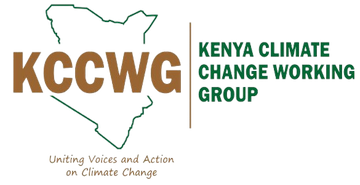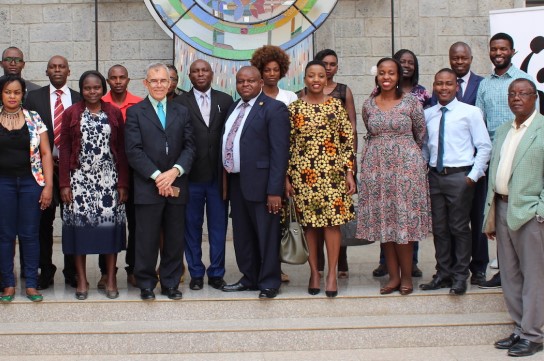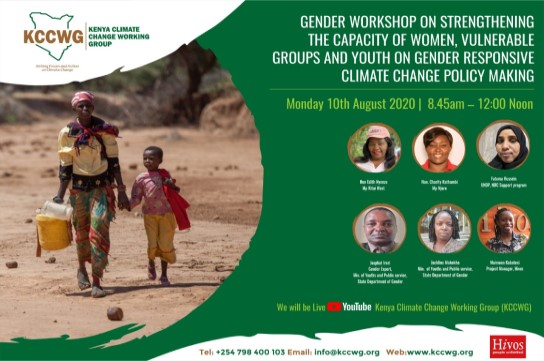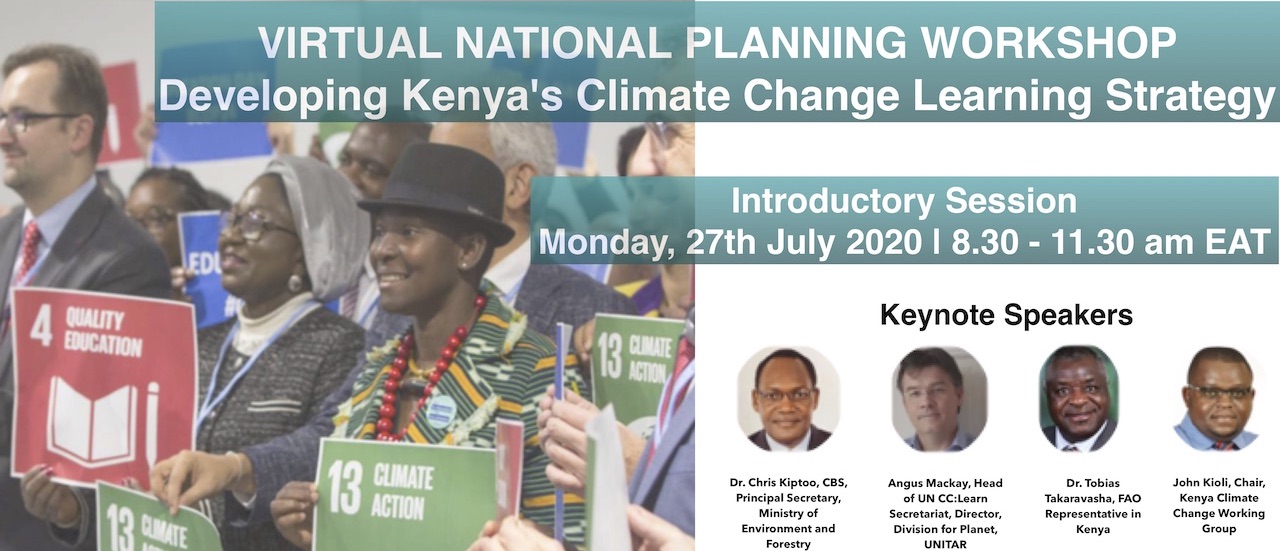The capacity-building workshop on mainstreaming gender in climate change policy and legislation was organized by Kenya Climate Change Working Group(KCCWG) in collaboration with Heinrich Boll Foundation at Park Place Hotel, Rongai on 29th November 2013. The workshop brought together representatives from the ten thematic groups through which KCCWG works, Suswatch, KCJWC among others with the aim of understanding the link between climate change and gender, the concept of gender and gender mainstreaming in development as well as the strategies for mainstreaming gender in climate change policies and legislation. The forum provided an avenue of sharing knowledge on climate change and how it affects the different gender groups as well as gaps in mainstreaming gender in climate change policies and legislations.
Climate change is now real and its effects more severe with efforts by CSOs and the government to address the issue on the rise. The Kenyan government is at the forefront in adapting and mitigating the adverse effects of climate change through the National Climate Change Response Strategy (NCCRS) which provides a framework for addressing threats of climate change as well as taking advantage of any opportunities that may arise and pursues to the mainstream issue of climate change on the national development program. Initiatives by KCCWG on addressing threats of climate change included; the drafting of the climate change bill, the fast-tracking development of policies and strategies to implement the NCCRS, creation of synergies in environmental protection and sustainable development, promotion of practices for adaptation, and mitigating the threats of climate change and collaborative projects on climate change as well as conducting climate hearings in the seven ASAL counties that KCCWG has been implementing the CRM project.
Other presentations made included: presentation on the concept of gender and gender mainstreaming in development, the link between climate change and gender, and the strategies for mainstreaming gender in climate change policies and legislation. The workshop adopted the following as the way forward: Production and dissemination of the report to all the workshop attendees. Organization of more sessions on gender Need to outline how climate change affects each gender Carrying out an Impact Assessment Test on how climate change has affected/affected each gender Have a clear goal on agenda The workshop was interactive and it delved on the following areas: The concept of gender and gender mainstreaming in development The link between climate change and gender Strategies for mainstreaming gender in climate change policies and legislations Plenary The closing remarks were made by Mr.Muraya who thanked Mr.Msafiri for inviting him to the workshop. He thanked the facilitators for their enlightening presentations. Mr.Muraya extended his sincere gratitude to the workshop participants for finding time outside their busy schedules to attend the workshop.
Attachments:
Kccwg Subscription






Follow @kccwg
Follow @unfccc